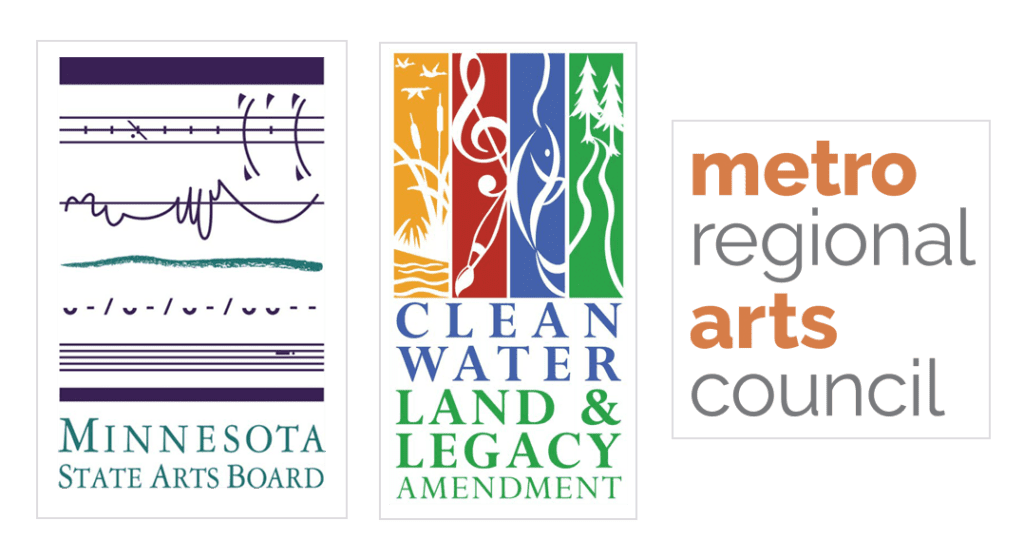We are excited to announce the lineup for our 2023 Fall Iranian Culture Festival, “Mehtegan: A Persian Celebration of Love, Kindness and Hope” to be held Saturday, October 7, 2023 at 526 Selby Ave. St. Paul, MN 55102.
Our fifth annual Iranian Culture Festival will feature Persian music, folk dance, crafts, food and more, plus a special appearance by Marjan Farsad. Enter at 526 Selby, next to salon and cafe.
Event Lineup
11:00 a.m.- The doors will open with:
- A display of Iranian tapestry, embroidery and silver works, from the collections of Niccu Tafarrodi.
- A chaikhaneh (tea house) featuring Iranian tea served from traditional Iranian samovars, and sweets provided by the Southdale’s Luminous Cafe.
- Kids activities, organized by Elham Ayoubi (until 1 p.m.)
12:00 to 1:30 p.m.- Lunch items will be available for purchas, including chicken or lamb skewers (koobideh) with flat bread. Cooked on an outdoor grill by master chef, Alireza.
1:15 p.m.- The afternoon program kicks off with a welcome by TCICC board chair Hossein Jalali.
1:30 to 2:30 p.m.- A special appearance by singer-songwriter-artist Marjan Farsad, before she begins her national tour. She’s performing in the Twin Cities on November 5!
2:30 to 3:30 p.m.- Pianist, Faraz Ghassemi performs a program of music inspired by his Iranian heritage, including classical melodies, pop favorites and original compositions.
3:30 to 4:30 p.m.- The poetry of Omar Khayyam, set to music like you have never heard it before! Setar master, Dan Rein sings and plays the setar, dotar, and dotar banjo, accompanied by Mikkel Beckman on washboard, Sean Egan on bass clarinet and percussion, and Matt Cartier (from the popular Americana / Roots band Pert Near Sandstone) on banjo.
4:30 to 5:30 p.m.- Classical Persian Dancers Behnaz, Figen, Hana, Neşe, Parisa and Rachel of the Shirzan Dance Collective performing traditional Iranian folk dances Just back from their appearance at the San Antonio, Texas Mehregan festival!
5:30 to 7:00 p.m.- Light dinner fare for purchase, including aush reshteh (barley noodle soup) and veggie cutlet sandwiches.
7:00 p.m.- Music on the cutting edge, a “telematic electronic ambient jazz composition with visual arts,” performed by guitarist composer Niayesh Shababi on stage, with Mohamad Nikpour connecting remotely from Quebec.
8:00 to 9:30 p.m.- Dancing to Persian pop with DJ Mohammad Sargazi.
Meet the Artists and Performers
Faraz Ghassemi
Faraz Ghassemi is a classically-trained pianist and piano teacher from Iran. He started playing piano when he was only four years old and moved to the U.S. in 2013. Ghassemi started his school, Zoom Twin Cities, as a way to teach students to play piano and make connections through music. Ghassemi continues to work as a musician and piano teacher.
Having gone to school for music therapy, Ghassemi has experience helping kids heal through music. For instance, he shares that he taught a child who was non-verbal and would use the piano to communicate through music, such as using certain keys to communicate a ‘yes’ or ‘no.’ Music has also been a form of physical therapy for some students. Ghassemi describes this experience teaching kids with disabilities as rewarding.
While Ghassemi plays a lot of classical music, he also loves playing Persian music. “It reminds me of home,” he shared, adding that he would often play Persian music at family gatherings.
Photo Credit: Andre Ahyai
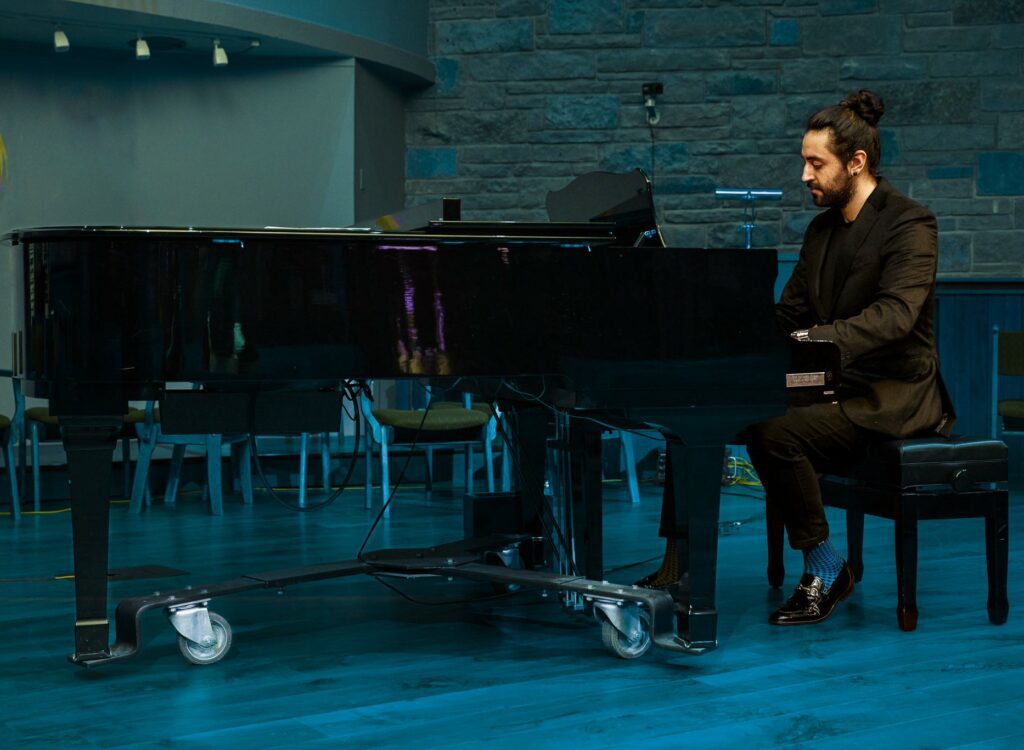
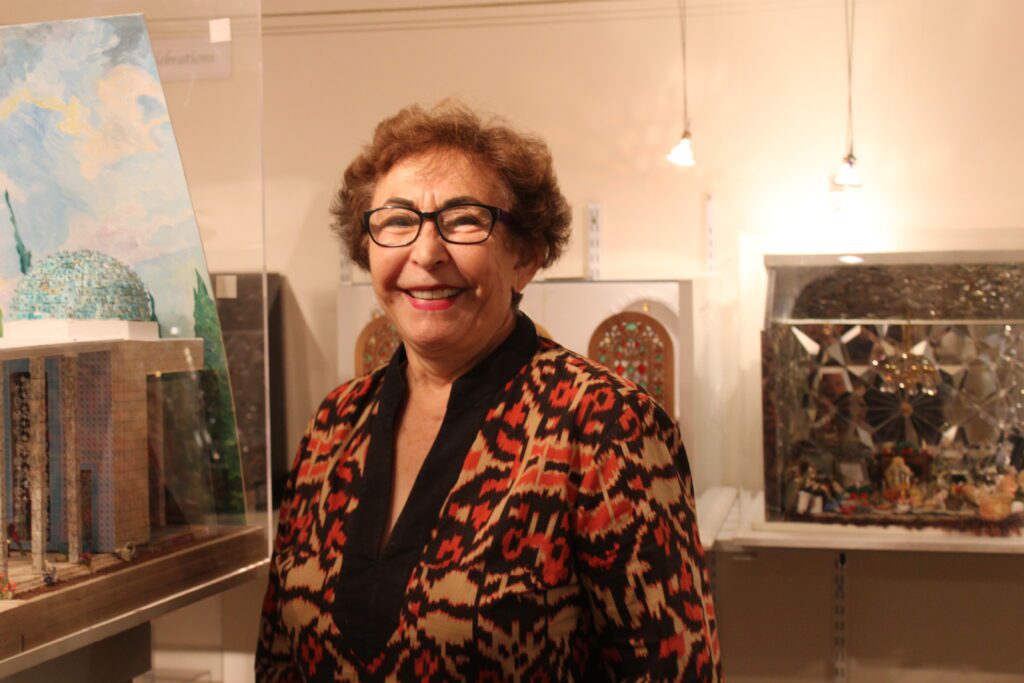
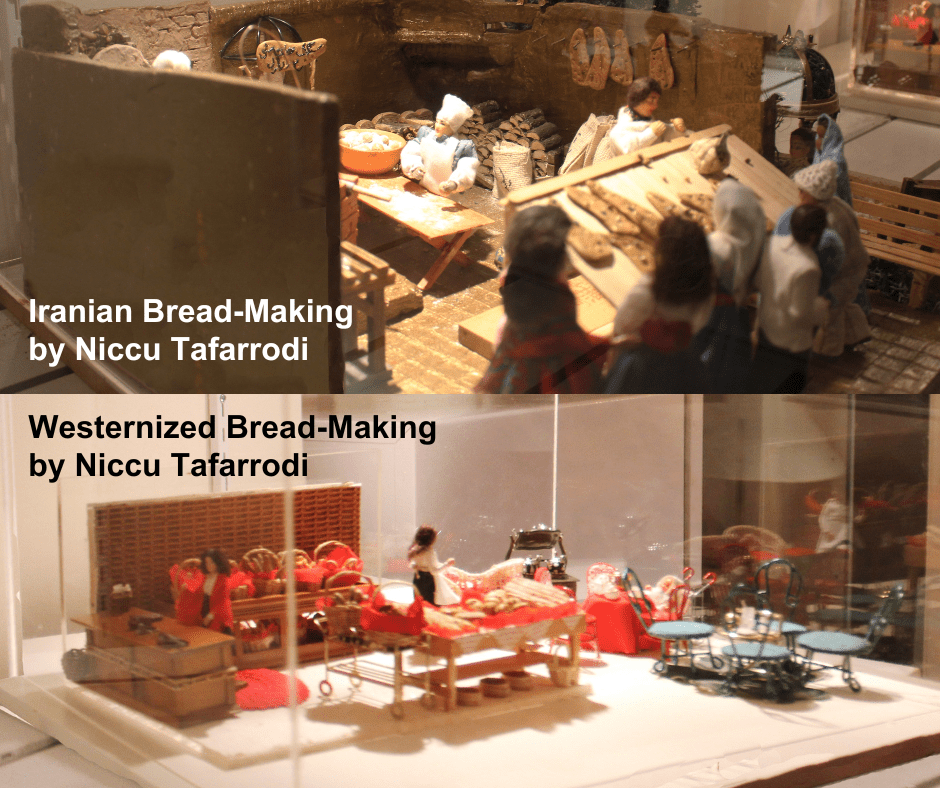
Niccu Tafarrodi
Niccu Tafarrodi is an Iranian artist and a Board Member for the Twin Cities Iranian Culture Collective. Tafarrodi creates dioramas based on her memories and experiences in Iran, to highlight Iranian culture.
Tafarrodi started making dioramas after visiting a museum in Chicago and seeing the art form for the first time. “I thought to myself, why is there nothing to show Iran?” she recalls. After that experience, she started learning how to make dioramas to uplift Iranian culture.
Tafarrodi also uses her memories of Iran as inspiration to create her dioramas. She says that her dioramas are for everyone, serving to help Iranians celebrate their culture, while helping Americans learn more about it. “I try to introduce our culture, our nationality and our…social values,” Tafarrodi explains. “My message is not only for Iranians, it’s for Americans. My goal is mostly to educate people because they were born here and they are very curious about our history.”
Her dioramas can take years to make and are made out of materials like plastic, beads, and even Iranian jewelry. Tafarrodi emphasizes that although dioramas take a lot of work, they can have a big impact on viewers. “Diorama[s] to me [are] much more powerful than book[s] or writing articles because as soon as you look at a diorama, you can see its roots, what life was like.”
Niayesh Shababi & Mohamad Nikpour
Niayesh Shababi is a guitarist and composer. A current music education major, Shababi aspires to be a performer and continue composing music. He has been playing and studying classical music for 10 years. However, his freelance work fuses styles like contemporary music, jazz, electronic dance music (EDM), and Persian music, putting a modern spin on cultural music. His music includes “an accent of Persian music,” as Shababi explains.
Shababi started exploring composition with a piano teacher who gave him the opportunity to practice composing and learn more about it. Shababi composed his first piece six years ago and now prefers playing his own composition, though he still plays classical music and other styles as well.
Having lived in Iran until he moved to the U.S. five years ago, Persian music has always been a part of Shababi’s life. He shares that though he plays Western instruments, the music and composition is influenced by Persian music and styles. For instance, he incorporates elements and techniques of playing Persian music into playing guitar. His music is also often inspired by the style and melodies of Persian lullabies, which are sung to children in small Iranian villages and have strong cultural value. Meanwhile, as a musician, he is inspired by Persian composer Hossein Alizadeh as well as Bela Bartok, Jon Hassel, and Stian Westerhus.
He hopes his music will help uplift Iranian culture, which he says needs more people helping to share it with the wider community in the Twin Cities and beyond. “Because of all the things that happened in history in Iran, this culture has been [limited]. It needs a lot of promoting and this will [happen] through Iranian artists.”
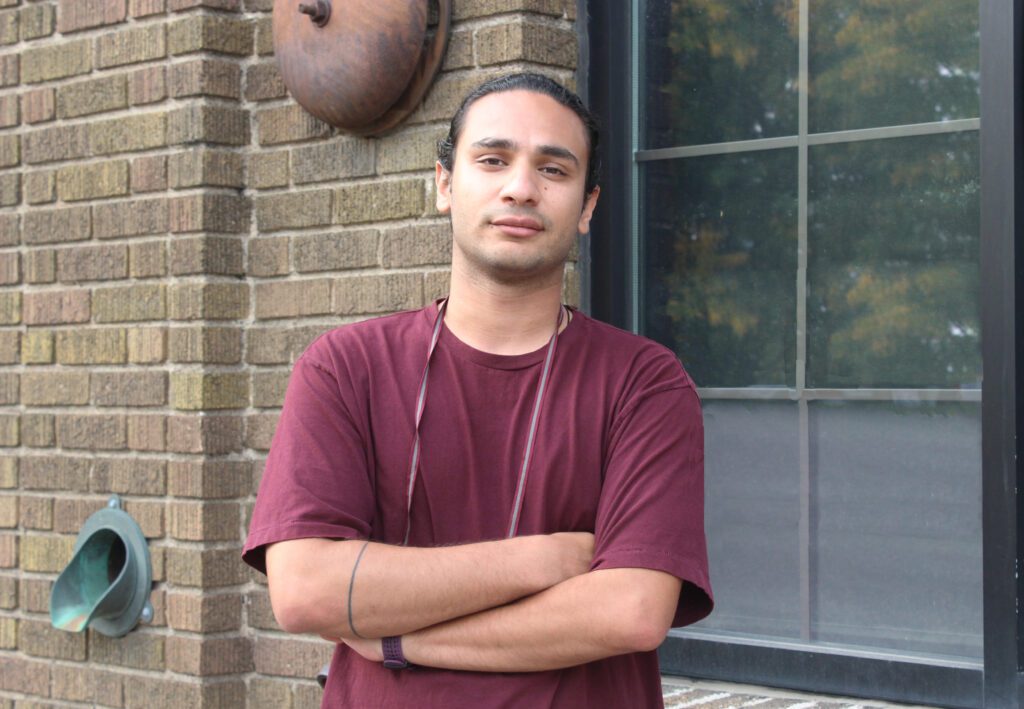
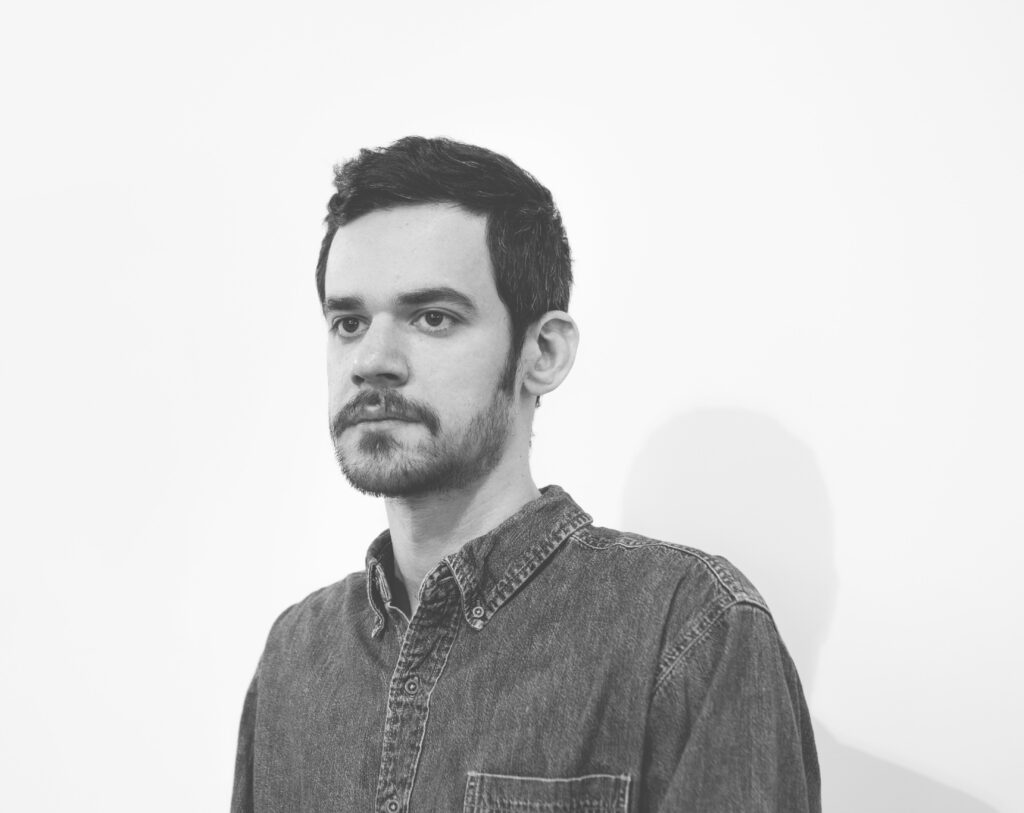
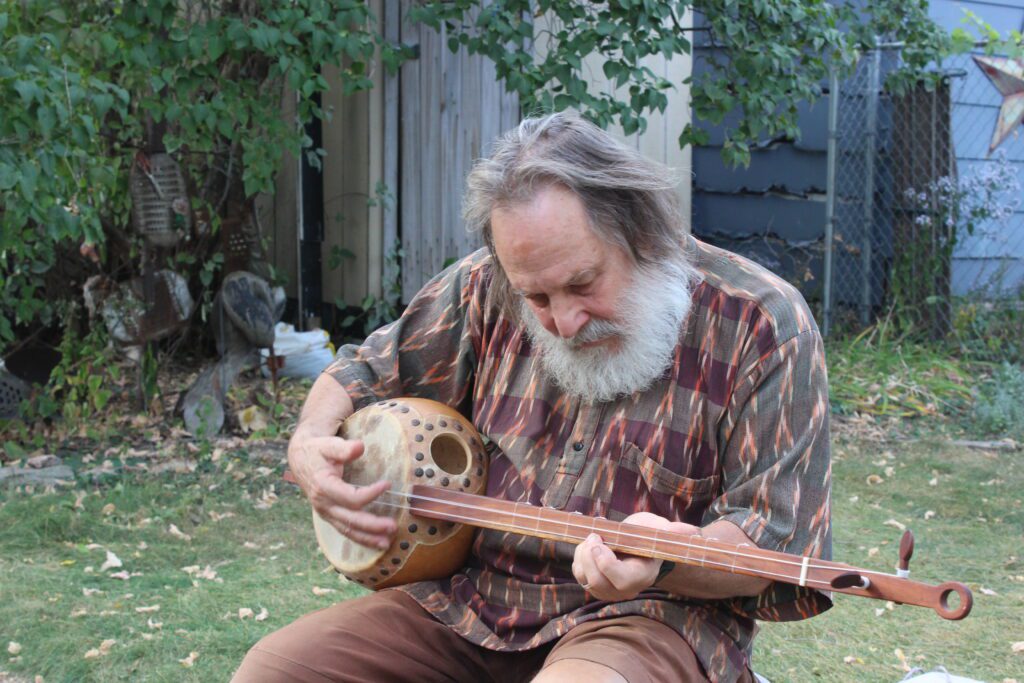
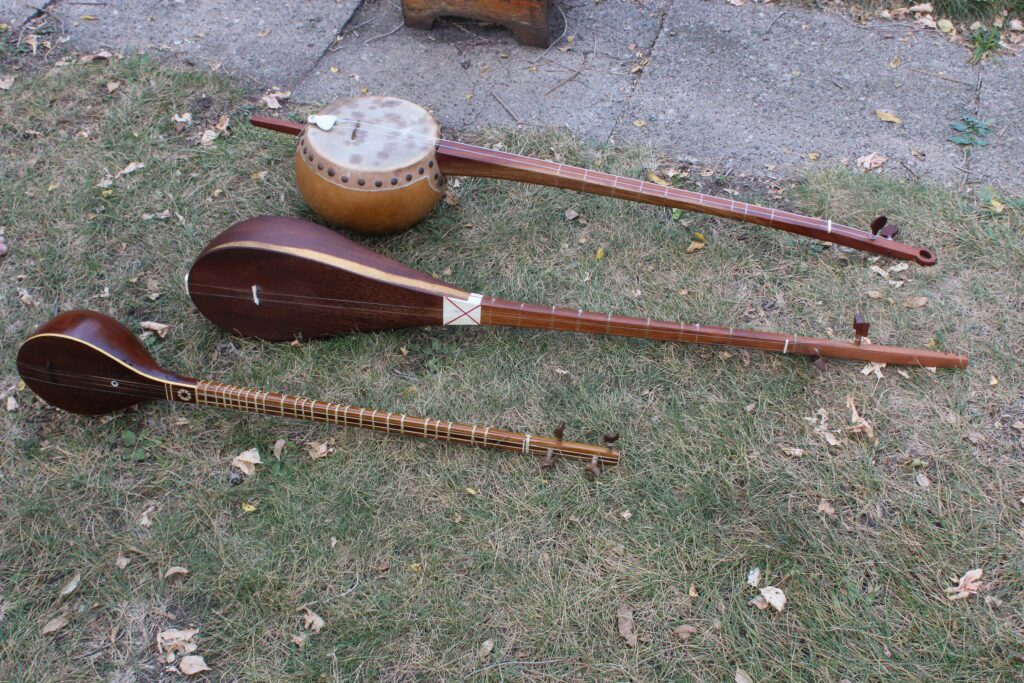
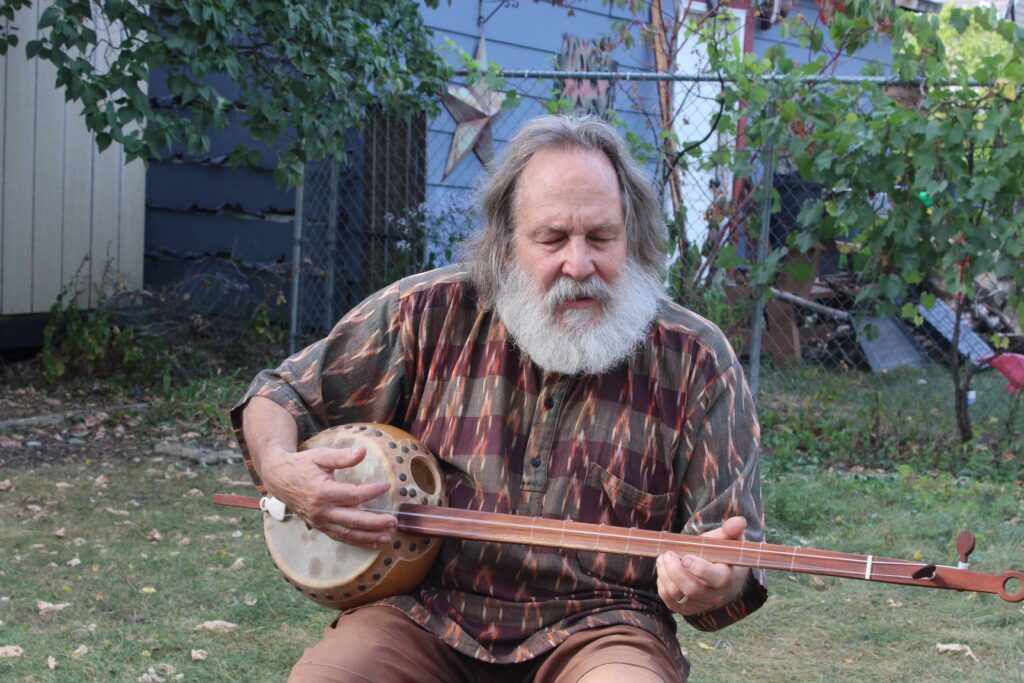
Dan Rein
Dan Rein is an American musician who plays traditional Iranian instruments. He has studied classical Iranian music for over 25 years and plays music on a variety of Iranian instruments, including the setar and dutar. He also plays the dubanj, an instrument he created which is a cross between an Iranian dutar and a banjo, with an old-style gourd banjo, Iranian neck, and two strings.
Oftentimes, Rein’s performances are improvised collaborations between American and Iranian instruments. Rein enjoys challenging the limitations of music by fusing aspects of Iranian and American music. On his musical collaborations with a local percussionist, Rein shares, “For us, it’s a conversation between my instrument and his percussion.”
As an American who plays Iranian music, Rein explores other aspects of Iranian culture in his everyday life as well. “If you learn the music, you also have to learn something about other aspects of the culture,” he emphasizes. “You can’t just learn one part of it. The music has its flavor, the food has its flavor, the poetry has its flavor.” Outside of music, Rein routinely eats Iranian foods like jujube and sumac, and shares them with his family. He also celebrates Iranian holidays like the Persian New Year.
When asked about what he would want others to know about Iranian culture, Rein stated, “Forget the politics of the U.S. and Iran. Iranian people are some of the kindest, most hospitable people you could ever meet. It’s as simple as that.” He asserts that you can learn a lot about Iranian culture by interacting with Iranian people and their community. “Once you meet somebody, it’s like you’re on a road to discovery.”
This project was made possible by the voters of Minnesota through grants from the Minnesota State Arts Board and the Metropolitan Regional Arts Council, thanks to a legislative appropriation from the arts and cultural heritage fund.
